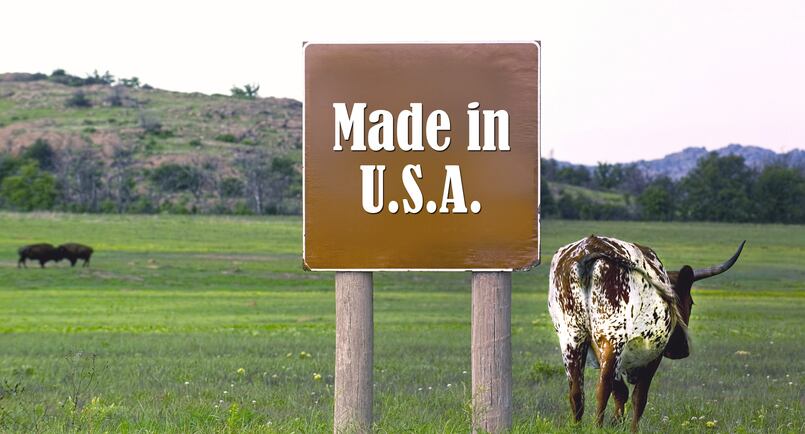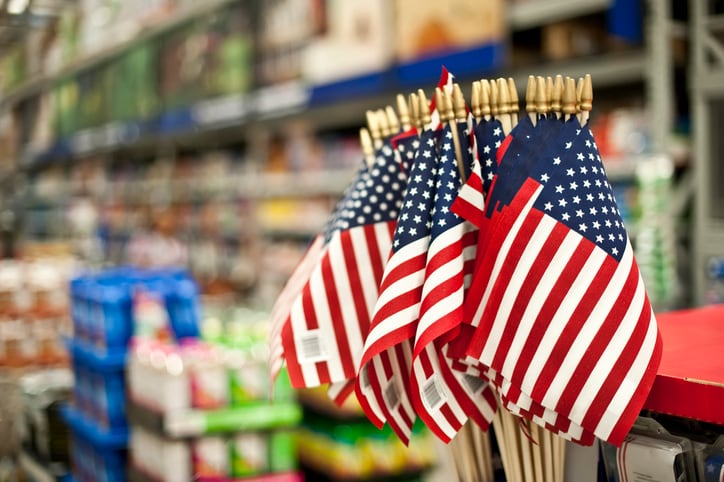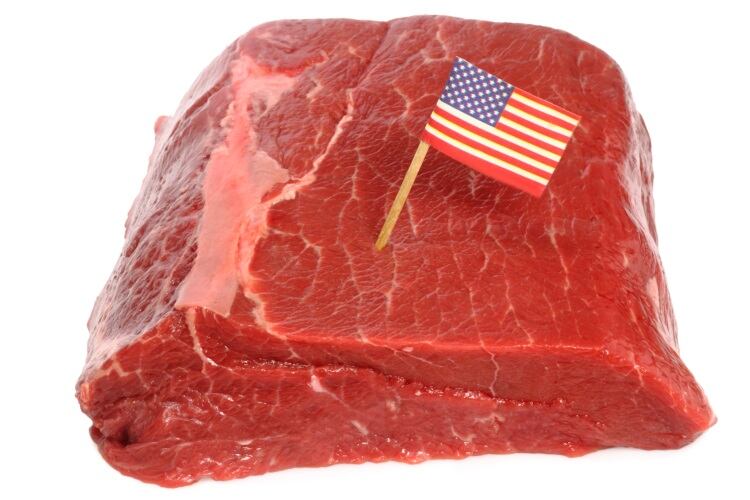In a proposed rule slated for publication in the Federal Register this week, USDA would allow voluntary “Product of USA” or “Made in the USA” label claims only on meat, poultry and egg products that are derived from animals born, raised, slaughtered and processed in the United States.
Currently, meat, poultry and egg products that are born, raised and partially processed abroad can still claim they are a “Product of USA” or “Made in the USA” if they undergo a “significant transformation” after arriving in the US.
However, as the US Cattleman’s Association points out, this “significant transformation” could be “as insignificant as trimming or rewrapping,” which it deemed “a wholly unacceptable practice that intentionally misleads consumers” and hurts the US economy.
“USCA is pleased to see that the proposed rule finally closes this loophole by accurately defining what these voluntary origin claims mean, something we have been working to clarify since the repeal of mandatory country-of-origin labelling in 2015,” USCA President Justin Tupper said in a statement.
“If it says, ‘Made in the USA,’ then it should be from cattle that have only known USA soil. Consumers have a right to know where their food comes from, full stop,” he added.
Broad industry support
USCA argued this point and for the proposed change in a petition for rulemaking it submitted to USDA’s Food Safety and Inspection Service in 2019.
USCA’s petition echoed that of the Organization for Competitive Markets (OCM) and the American Grassfed Association filed a year earlier in which they asserted the current policy caused financial harm to US family farmers and independent rangers by giving an unfair market advantage to companies that further process imported meat.
Both petitions were widely supported with the majority of the 2,593 public comments on the OCM/AGA petition and the 111 public comments on the USCA petition supporting the clarification.
A third petition from the National Cattleman’s Beef Association submitted in June 2021 was not as broadly supported as it argued for replacing the current “Product of USA” claim with a “Processed in the USA” label which many contended would not resolve consumer confusion.
Better alignment with consumer expectations
USDA determined that allowing “Product of USA” and “Made in the USA” claims to appear only on products derived from animals born, raised, slaughtered and processed in the US would better align with consumer expectations of the claims.
A survey of more than 4,840 US adults conducted by the agency found 47% of participants believed the label indicated that the animal was born, raised, slaughtered and the meat then processed in the US. Only 16% of participants understood the current meaning, which is that the meat was processed in the US, according to the USDA.
This is a subtle but important shift from the current regulation, which allows imported products that undergo a “significant transformation” in the US to claim they are a “Product of the USA” on the label.
Not all stakeholders support the change
While the proposed change is broadly supported, not all stakeholders are in favor of the change, according the USDA.
In the proposed rule, the agency acknowledges that some cattle producer trade associations, meat processor trade associations, Canadian and Mexican livestock producer trade associations and the Canadian and Mexican governments did not support the petition.
Stakeholders on both sides of the issue have 60 days to comment on the proposal for additional consideration.
‘The first step towards truth in labeling’
For other groups, the proposal does not go far enough.
The USCA lauded the proposal as “the first step towards truth in labeling since the [country of origin labeling] program’s repeal in 2015,” but added that “mandatory COOL remains [its] primary goal, and the wishes of the majority of the cattle producers and consumers.”
It encourage stakeholders to call and write their elected representatives to share their support for the American Beef Labeling Act, which would reinstate mandatory country-of-origin labelling requirements for beef in a way that complies with the rules of the World Trade Organization.
“The support of Congress will be a critical part of the pathway forward for COOL, and that will be accomplished through a grassroots push by cattle producers,” USCA said in a statement, adding: “We must rally around definitions – the pathway towards country-of-origin labeling begins with closing the current loopholes. The approach suggested by USDA would get labeling right on beef. Now, we need to work to get it right on cattle.”




